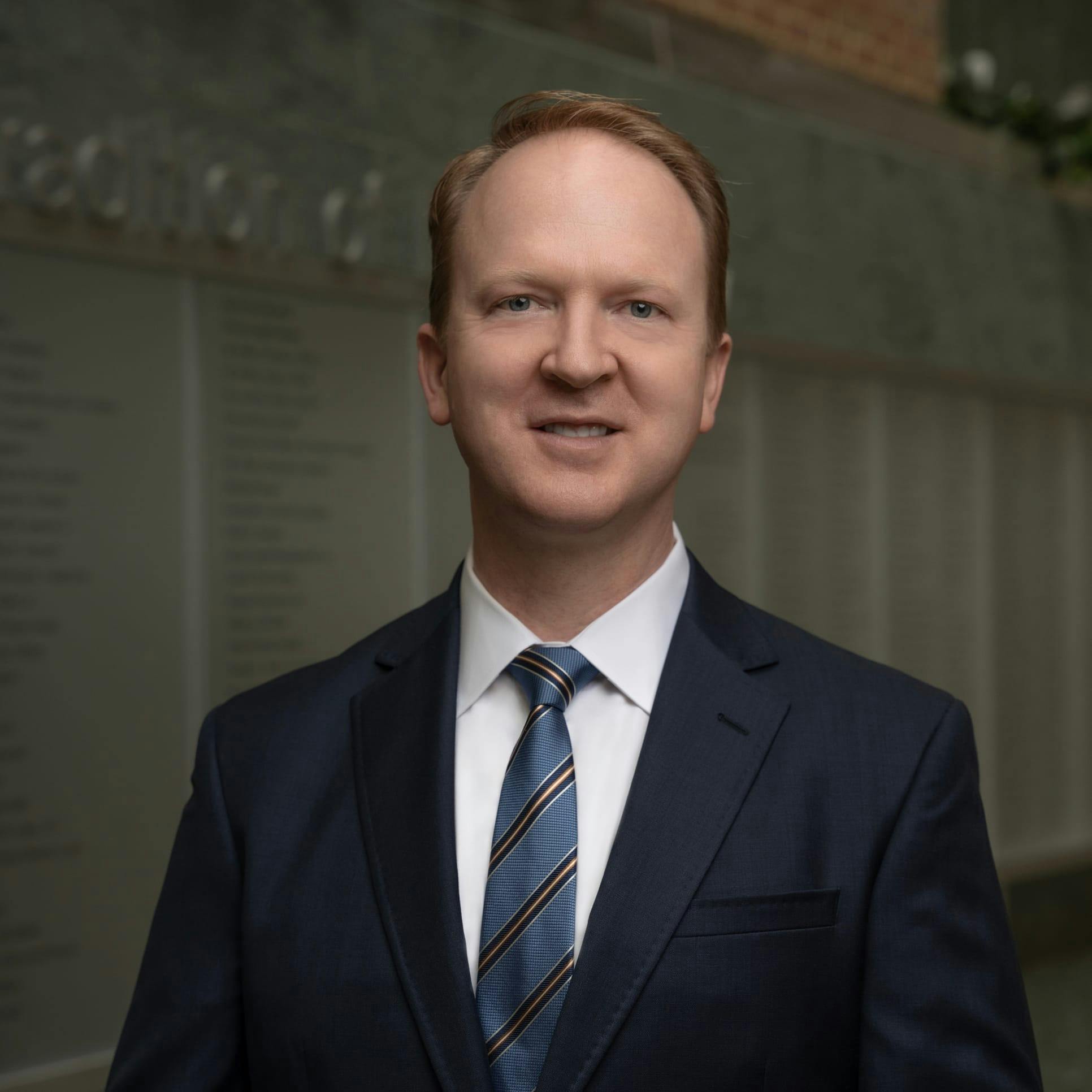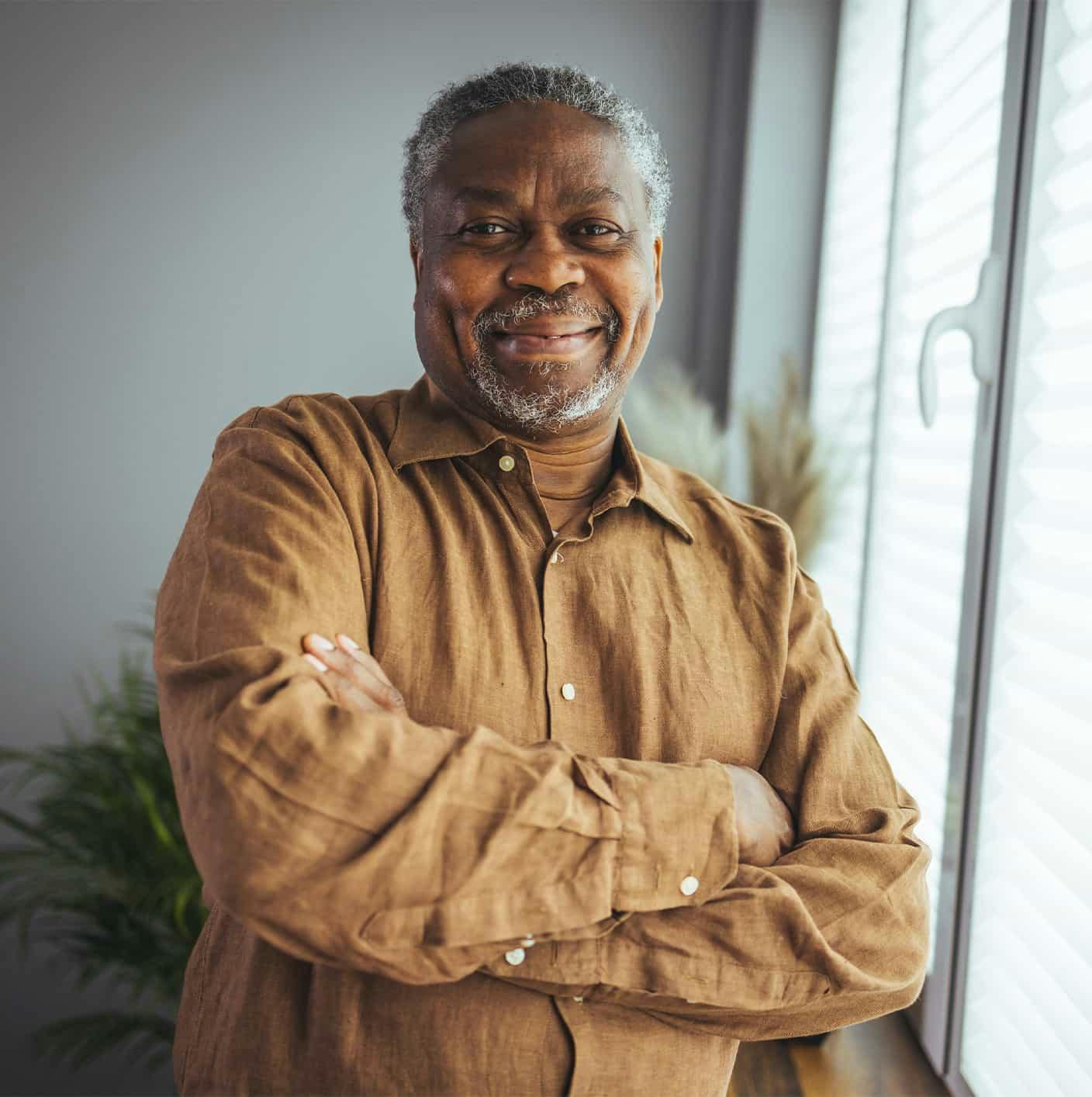Scoliosis is a condition characterized by an abnormal curvature of the spine.
Scoliosis and Spinal Deformity in Arlington, VA


Understanding Scoliosis
Scoliosis usually presents as a sideways curvature of the spine but can also be associated with posture changes that result in a pitched forward posture when standing or walking (kyphosis).
It can be present from birth, develop with aging from severe arthritis, occur secondary to another neurologic condition that affects the muscles and coordination, or have no obvious cause. Scoliosis and spinal deformity can occur anywhere in the spine, and the symptoms patients experience are often related to the location of the abnormal curvature.
Patients may experience:
- Pain in the back or extremities or along prominent areas of curvature.
- Difficulty maintaining upright or neutral posture.
- Fatigue in the back when walking.
- Changes in physical appearance: asymmetric shoulder height, uneven hips or waist, tilted head, prominent rib cage on one side of the body.
- Pain in the arms or legs.
- Numbness, pins, and needles, or burning in arms or legs.
- Weakness in extremities.
- Difficulties with walking.

Why Choose Virginia Neurosurgeons for Scoliosis Care?
At Virginia Neurosurgeons, our board-certified neurosurgeons have extensive training in the diagnosis and surgical management of spinal conditions. What sets Virginia Neurosurgeons apart from other spinal surgeons is our comprehensive training as neurosurgeons. We approach each case by integrating the patient's symptoms, imaging findings and diagnostics, and detailed neurologic assessment to diagnose the patient and formulate a personalized treatment plan. We pride ourselves on ethical and honest practices, serving as trusted advocates and partners for our patients' medical care. Our commitment to open communication ensures that patients fully understand their conditions and treatment options, even if they are not surgical candidates. Our surgical interventions aim to provide clinically meaningful benefits, including pain reduction and preservation and restoration of neurological function, improving the quality of life for our patients.
How Is Scoliosis Diagnosed?
At Virginia Neurosurgeons, our board-certified neurosurgeons adopt a comprehensive approach to understanding the specific factors contributing to your condition. By combining state-of-the-art diagnostic tools, Virginia Neurosurgeons ensures a precise understanding of your condition, enabling the development of personalized and effective treatment strategies for each patient. Our expert team follows a meticulous process to procure evidence of exactly what is occurring:
Medical History:
Our surgeons will review your symptoms and medical history to help you understand and identify sources of pain and neurologic symptoms.
Physical Examination:
Conducting a detailed physical examination allows our neurosurgeons to assess reflexes, muscle strength, and sensory function, aiding in pinpointing affected nerve pathways. Specifically for scoliosis, our surgeons will assess your posture, standing, and walking.
Imaging Studies:
Standing X-rays of your entire spine will assess your spinal alignment standing and with certain positions. Detailed measurements from these X-rays of her scoliosis and its impact on your posture will be performed to understand your scoliosis's impact fully. Advanced imaging techniques, such as MRI or CT scans, are employed to visualize the spine and identify structural abnormalities, including herniated discs or spinal stenosis.
Electrodiagnostic Tests:
Nerve conduction studies and electromyography (EMG) help evaluate the electrical activity of muscles and nerves.
Diagnostic Injections:
Targeted injections, such as epidural steroid injections, can help confirm the source of pain and further guide the treatment plan.

Scoliosis Treatment at Virginia Neurosurgeons
Once our neurosurgeons have diagnosed you with scoliosis or a spinal deformity, they will discuss with you the non-surgical and surgical treatments. Treatment options are considered based on factors such as the degree of curvature and how it affects your posture, neurologic compression, associated symptoms, and overall health. Common treatment approaches for scoliosis and spinal deformity include:
Non-Invasive Interventions:
- Observation with repeat X-rays to track the progression of the curvature.
- Medications for pain management and inflammation.
- Physical therapy is used to improve core strength and stabilize your spine.
- Activity modification to reduce strain on the spine.
- Acupuncture or dry needling.
- Chiropractic care.
Minimally Invasive Procedures:
- Epidural steroid injections to alleviate pain in the nerves and spinal joints.
- Radiofrequency ablation (specialized heat treatment) to disrupt nerve signals causing pain.
Surgical Interventions:
- Corrective surgery can normalize your spinal curvature and reduce pain. Corrective surgery is typically reserved for severe cases not responsive to non-operative therapy, given the extensive nature of the required surgery.
- Decompression surgery to relieve pressure on nerves caused by scoliosis.
Comprehensive Rehabilitation Programs:
- Customized exercise regimens for ongoing strength and flexibility.
- Lifestyle modifications for long-term spine health.
- Patient education to promote self-management and prevent future issues.
Many patients will benefit from non-surgical therapies. Patients who do not respond to conservative therapy may be surgical candidates. However, not all patients with degenerative disc disease may benefit from surgery. At Virginia Neurosurgeons, we will provide you with our honest recommendation on the most effective treatment for your condition, even if it is not surgical.

Schedule a Consultation with the Experts at Virginia Neurosurgeons
Take the first step towards managing your scoliosis by scheduling a consultation at Virginia Neurosurgeons today. We are dedicated to helping people like you live a healthier, happier life through comprehensive treatment options.
